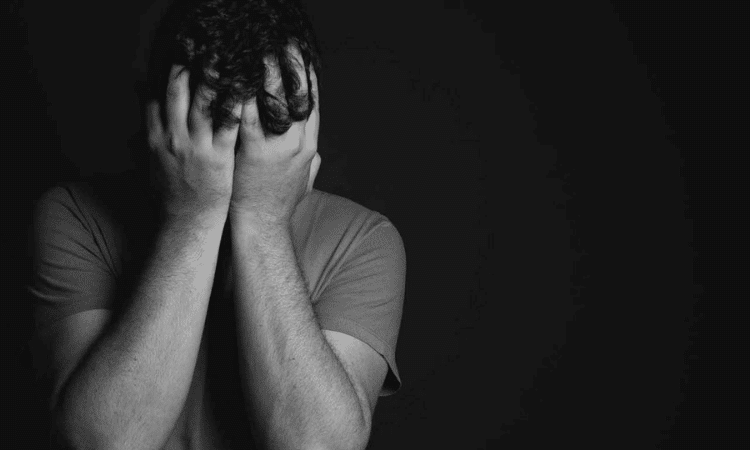EMDR Therapy in Worcester
Eye movement desensitization and reprocessing, or EMDR therapy, is a unique, evidence-based approach to mental health treatment. It involves focusing on the memory while moving your eyes back and forth. This can reduce the intensity of the memory and its associated emotions.
EMDR was first used to help people with post-traumatic stress disorder (PTSD), but it can also help with substance abuse and other mental health problems. It helps your brain process these memories in a healthy way.
At Blue Hills Recovery, we use EMDR therapy in Worcester to help you heal from trauma. Read on to learn how EMDR therapy can be a powerful tool in your healing journey.
Understanding EMDR Therapy for Mental Health & Addiction Recovery
EMDR therapy is a unique psychotherapy designed to help you recover from trauma, including PTSD and addiction. EMDR therapy combines bilateral stimulation (like eye movements) with recalling traumatic memories to reduce their negative impact.
This treatment helps you process unresolved traumatic memories, making it easier to form positive beliefs about yourself and your life. With a focus on trauma recovery, EMDR addresses negative beliefs associated with traumatic experiences.
It’s a well-regarded and effective treatment used by clinicians worldwide, including mental health professionals at Blue Hills Recovery.


Benefits of EMDR Therapy
EMDR therapy is effective for those facing trauma, addiction, and mental health issues. Research consistently supports its role in healthcare to reduce distress from psychological trauma and PTSD.
Key benefits of EMDR therapy for both addiction and mental health recovery include:
- Quick results: often provides faster relief from trauma symptoms.
- Works for many: effective across different cultures and backgrounds.
- Aids addiction recovery: helps reduce triggers and emotional distress related to substance abuse.
- Treats multiple conditions: can help with PTSD, depression, anxiety, and other mental health issues.
- Eases depression and anxiety: reduces symptoms of depression and anxiety.
- Helps people with disabilities: effective for people with intellectual disabilities.
- Addresses various trauma: helps with chronic pain and other types of trauma.
At Blue Hills Recovery, EMDR therapy is a key part of our treatment plans. Recognized by the American Psychiatric Association, EMDR effectively addresses trauma and PTSD, including body sensations, like tension and anxiety, linked to traumatic memories.
Mental Health and Addictions Treated with EMDR Therapy
EMDR therapy is a powerful tool for addressing a wide range of mental health issues and addictions.
It’s widely supported by research, including studies published in the Journal of EMDR Practice and Research, highlighting its effectiveness in trauma and addiction recovery.
At Blue Hills Recovery, our mental health professionals use EMDR to foster healing and resilience for people facing the following conditions:
- Substance abuse
- Phobias
- Obsessive-compulsive disorder (OCD)
- Eating disorders
- Gender dysphoria


Our Mental Health and Addiction Programs That Use EMDR
Blue Hills Recovery offers several programs that use EMDR therapy to support you through different stages of recovery. These programs allow you to receive specialized care based on your needs and schedules.
Outpatient Program
Day Treatment Program
Evening Treatment Program
Who Can Benefit from EMDR Therapy in Worcester?
EMDR therapy can help many different people. It’s beneficial for teens, adolescents, and older adults, often making it a good choice for anyone seeking recovery.
It can be especially helpful if you:
- Have experienced trauma: EMDR supports people who have been through traumatic events, like veterans, first responders, and those affected by abuse or natural disasters.
- Struggle with addiction and mental health issues: It’s a great option for people facing both substance abuse and mental health issues.
- Hold negative beliefs about yourself: EMDR works to replace negative self-beliefs with positive ones, boosting self-esteem.
What to Expect in an EMDR Therapy Session
An EMDR session at Blue Hills Recovery follows specific steps to make sure it’s safe and effective.
Each session is unique, as you work through the stages of EMDR treatment at your own pace. The speed of progress depends on the trauma’s impact and how each stage goes.
Here’s what a typical session might include:
- History-taking and planning: Your therapist learns about your life experiences and sets goals for your treatment.
- Preparation: You’ll learn about EMDR, its benefits, and what to expect. Your therapist might teach calming techniques for when things feel intense.
- Assessment: Together, you and your therapist identify the traumatic memories and negative beliefs to focus on.
- Desensitization: Using eye movements or tapping, your therapist guides you through the memory, helping to ease its emotional impact.
- Installation: Positive beliefs replace the negative ones linked to the trauma.
- Body scan: You’ll check for any physical reactions to the memory, making sure there’s complete relief.
- Closure and reevaluation: Each session ends with calming exercises, and your progress is checked in the next session.
Our EMDR therapists personalize each session to fit your needs, helping you feel safe and supported throughout your treatment. All our therapists have completed EMDR training, ensuring you receive care that is both safe and effective.
EMDR Therapy Costs and Payment Options
The cost of EMDR will vary depending on how many sessions are needed and if any other services are needed. At Blue Hills Recovery, we understand cost is an important factor.
Many private insurance plans or programs like Medicaid cover mental health treatments, including EMDR. We also offer self-pay options with transparent pricing.
Our team is here to help navigate payment options, ensuring you receive quality care within your budget. Verify your insurance coverage on our website and reach out with any questions.
Discover EMDR Therapy for Better Mental Health at Blue Hills
The caring and experienced healthcare providers at Blue Hills Recovery help people heal from trauma, addiction, and mental health problems. We use EMDR therapy to help people feel better. Our team is kind and caring, and we’ll support you every step of the way.
If you or someone you know needs help, please contact Blue Hills Recovery. We can help you feel better and live a fuller life in recovery.
EMDR Therapy in Worcester FAQs
How does EMDR heal trauma?
How long does EMDR therapy take to work?
Can EMDR therapy help with addiction?
Sources
Let’s talk about how we can help.
A Life of Healing Can be Yours.
You deserve to become your best self. With decades of combined experience in the field of addiction medicine, our staff knows what it takes to build a foundation for recovery.